This website uses cookies so that we can provide you with the best user experience possible. Cookie information is stored in your browser and performs functions such as recognising you when you return to our website and helping our team to understand which sections of the website you find most interesting and useful.
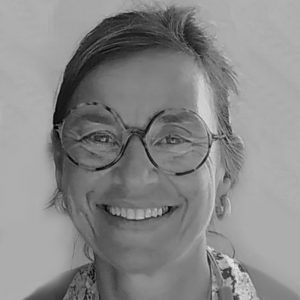 Maria José Nepomuceno
Maria José Nepomuceno
Technical Management
Maria Nepomuceno started out as a kindergarten teacher and graduated in Clinical Psychology from ISPA. She is a full member of the Portuguese Psychologists’ Association. In 2006, she trained as a psychotherapist at the Portuguese Society of Brief Psychotherapies and has since been in private practice. She completed the curricular component of her Master’s Degree in Philosophy, specializing in Ethics, Citizenship and Gender, at the University of Évora. She has developed professional experience in the area of rehabilitation and integration of people with intellectual disabilities at Cercidiana in Évora. A certified trainer, she was a board member of Fenacerci, the Federation of Social Solidarity Cooperatives, and a leader of non-governmental organizations.
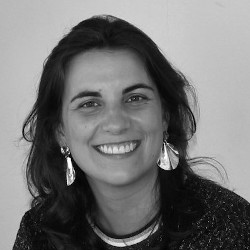
Jéssica Nunes
Operational Management
Jéssica Nunes is a Psychomotrician at Casa de Alba. She has a degree in Psychomotor Rehabilitation from the University of Évora. She completed a curricular internship (2014) at the Institute of Relational Knowledge and Psychomotricity (INCORP), where she accompanied children with mental health disorders and their families, and at the S. Sebastião Pensioners’ Center (Setúbal), in the preventive and rehabilitative spheres. She has worked as a monitor in the Protected Living Unit of the Ajuda Rehabilitation and Integration Association and in the Telhal Health House (transdisciplinary intervention in psychosocial rehabilitation).
She took part in the European Forum of Psychomotricity held in Holland (2013). She has taught classes as part of the Degree in Psychomotor Rehabilitation at the invitation of the University of Évora in the curricular units of Psychopathology and Psychomotor Expression and Health Psychology. She presented “From the lived body to the represented body” at the Casa de Alba seminars. She is studying for a master’s degree in Relational Psychomotricity at the University of Évora, and is currently working on her dissertation “Impact of a relaxation program on the mental health of adults in a therapeutic community setting”.
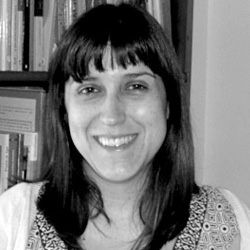
Cátia Ribeiro Alves
Psychotherapist
Graduated (pre-Bologna) in Psychology, branch of Clinical Psychology, from the University of Évora. Full member of the Portuguese Psychologists’ Association, recognized as a specialist in Clinical and Health Psychology and Psychotherapy. Full member of the Portuguese Society of Clinical Psychology, specialist in psychodynamic psychotherapy. Certified trainer. With professional experience in various contexts, she was a collaborator in the NOP project “New Parenting Opportunities”, promoted by “Questão de Equilíbrio” and funded by the Calouste Gulbenkian Foundation under the Children and Young People at Risk Program. She worked as a psychologist in a children’s home and also in a family support and parental counseling center. She has also worked as a psychologist in a Therapeutic Community for Drug Addicts in Castro Verde and in various prisons in central and southern Portugal. In the field of research, she collaborated in the National Study on “Health and Psychological Well-being” carried out by the Faculty of Medical Sciences of the New University of Lisbon and the Portuguese Catholic University, under the coordination of the World Health Organization and Harvard University. She has recently been training in Open Dialogue and Dialogical Practices in collaboration with the APOD Academy in London and supervised by the Institute of Dialogical Practice in New York. She worked on the first Open Dialogue pilot project in Portugal and on the Romão de Sousa Foundation’s community projects managed by “Portugal Inovação Social” and “Cidadãos Activ@s”.
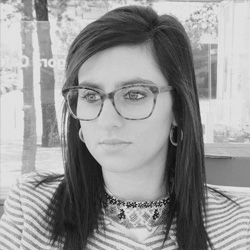
Cláudia Pedro
Clinical Psychologist
Cláudia Pedro is Clinical Psychologist at Casa de Alba. Master in Clinical and Health Psychology from the University of Évora. Developed the master’s thesis “How do people cope with health crises? An analysis of the manifestations of secondary coping on Twitter during a crisis “, and is currently writing an article in this field to be published in scientific journals in the area. He completed the curricular internship at the Department of Psychiatry and Mental Health (DPSM) of the Hospital do Espirito Santo in Évora where he developed several activities such as psychological follow-ups, psychological assessments, participation in the Child and Adolescent Psychology Unit with the hosting of meetings, team in psychiatry with the objective of reporting the cases that would need to be followed up in an outpatient clinic. During the internship he began to use the Individualized Patient Progress System (IPPS) program, presenting him to the team, resulting in the interest of using some members and passing the DPSM to collaborate with the University of Évora in collecting data through these “Custom Measures Therapeutic Gain Monitoring “, title of the presentation. He recently participated in the training “Mental Health – implementation of responses in the community” in the Psychiatric Hospital Center of Lisbon – Júlio de Matos Campus.
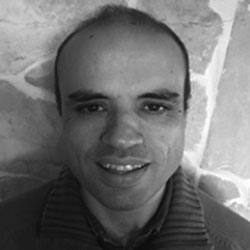 Diogo Janeiro
Diogo Janeiro
Social Assistant
Diogo Janeiro is Social Worker at Casa de Alba. Degree in Applied Social Research and Post-Graduate in Safety and Hygiene and Health at Work.
She worked at Cercimb (Cooperativa dos Namidos Inadaptados de Moita and Barreiro), as a Senior Social Worker, working with disabled people and at-risk youth.
He held positions at the Municipality of Monforte, as Senior Technician of Sociology, and was responsible for an Equal Transnational Project, which sought to help the most disadvantaged, seeking to integrate them into the labor market and / or creating self-employment. He worked as an External Trainer for several companies, both public and private, having contacted several target audiences. He worked as a RVCC Technician at CNO, having followed processes of equivalence to Basic and Secondary education. He held positions again in the City Council of Monforte, where he collaborated in the Communitarian Program of Delivery of Foodstuffs for the Careless (PCAAC), Municipal Card of the Elderly. He was a collaborator of the Municipal Council of Sousel, where he held positions in the Social Action Office, participating in the various projects implemented. (Senior University, Social Shop, Memory Workshop, Gente Grande Grande Movement), updating of Social Diagnostics, among other projects. He was a collaborator in the Technical Team of the Humanitarian Center of the Red Cross of Évora. He participated in the various responses promoted by the institution, such as: Teleassistance Service, Domiciliary Support Service, Social Assistance and Support, Food Supply Delivery, Social Refectory.
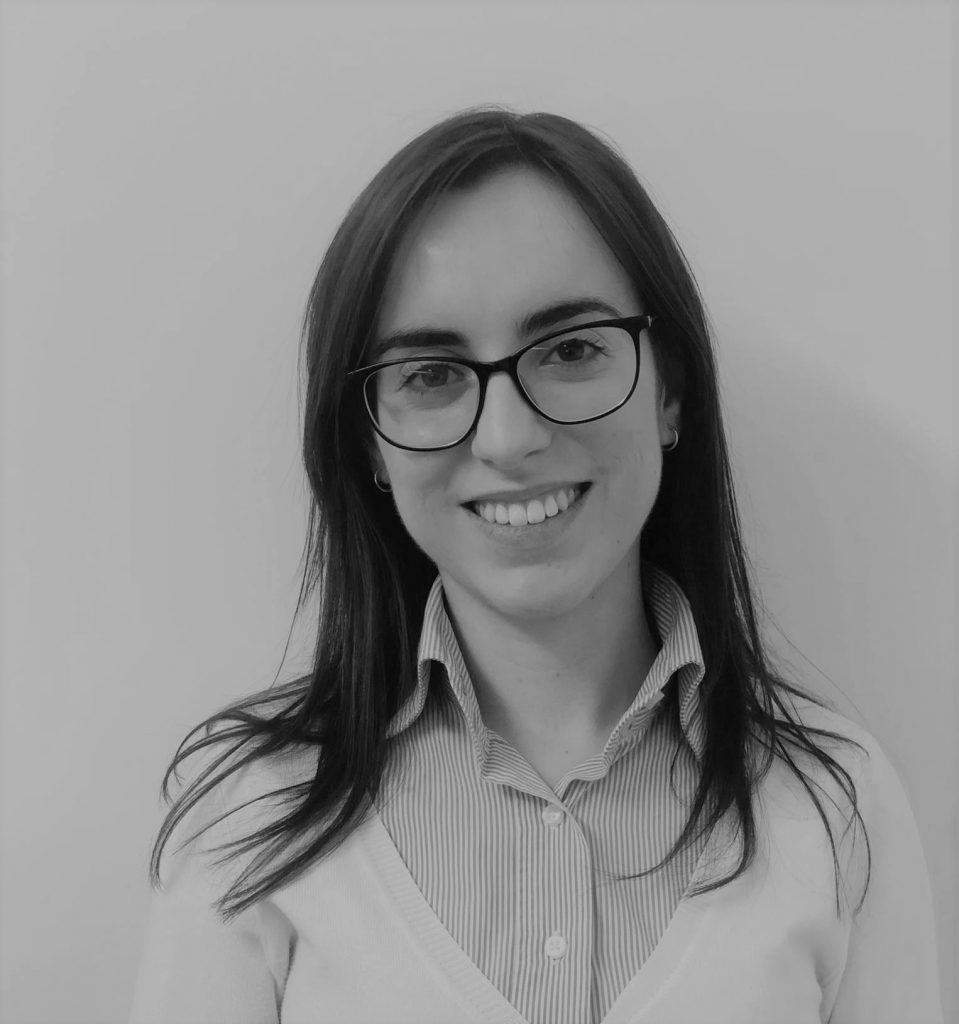 Bruna Araújo
Bruna Araújo
Psychologist
Bruna Araújo is a junior psychologist at Casa de Alba. She has a Master’s degree in Clinical and Health Psychology from Universidade Portucalense Infante D. Henriques (UPT). She did her curricular internship at a Private Social Solidarity Institution (IPSS) where she carried out activities such as psychological assessment, intervention plans, vocational guidance, drawing up psychological reports, cognitive stimulation activities, drawing up and implementing group programs and awareness-raising activities for family members/legal representatives, educational agents and young people. She has worked on projects with young people and their families/legal representatives in crisis and/or risk situations, with the aim of reducing social discrimination and social reintegration. She has trained in Psychological First Aid, Intervention in Addictive Behaviors and Dependencies and Family Models.
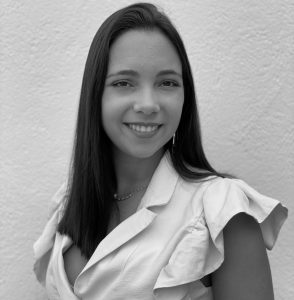 Sofia Graça
Sofia Graça
Graduated in Psychology
Sofia Graça is a Graduated in Psychology. She has a degree in Psychology from the University of Évora and is working on a Master’s dissertation in Clinical Psychology at the University of Évora entitled “Open Dialogue Community Intervention Project in Northern Alentejo – A study on its implementation”. She completed her curricular internship, having remained at Casa de Alba after it ended in 2020. Conducted therapeutic groups such as the Mentalization Group (MBT-i), Music Group and Reading and Creative Writing, Group and Multifamily Therapy and Therapeutic Plans Group. She took part in meetings with the Proximity Team involving the Social Network and worked as a Reference Technician. Member of the Research Group, whose duties include organizing the International Congress on Mental Health, writing scientific articles on the Open Dialogue approach, validating the ReQol instrument for the Portuguese population and monitoring research involving Casa de Alba. Training in Open Dialogue and Dialogical Practices (1st year).
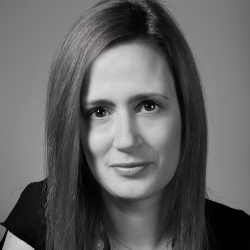 Ana Sevinate
Ana Sevinate
Psychologist
Ana Sevinate graduated in clinical psychology from ISPA-IU. She has a postgraduate degree in Psychosynthesis from the Psychosynthesis & Education Trust, University of East London and in Palliative Care from the Faculty of Medicine of the University of Lisbon. She is a full member of the Order of Psychologists and the British Association for Counsellors & Psychotherapists. She is currently training with Poeisis Analítica, the Portuguese Association for Psychoanalytic Couple and Family Psychotherapy. She has maintained her private practice since 2013, working with the foreign community living in Portugal. She has developed her ongoing training in the areas of bereavement, life transitions/mental health and ecopsychology. At the same time, she has professional experience in the area of Palliative Care: the Palliative Care Unit of the São João de Deus Clinic in Lisbon and the Psychosocial Support Team of the Santa Casa da Misericórdia do Porto (Humaniza Project of the La Caixa Foundation). She collaborates with the Compassio Association (Porto), through which she facilitates community bereavement support groups and, more recently, with the Borba Contigo Cidade Compassiva Association.
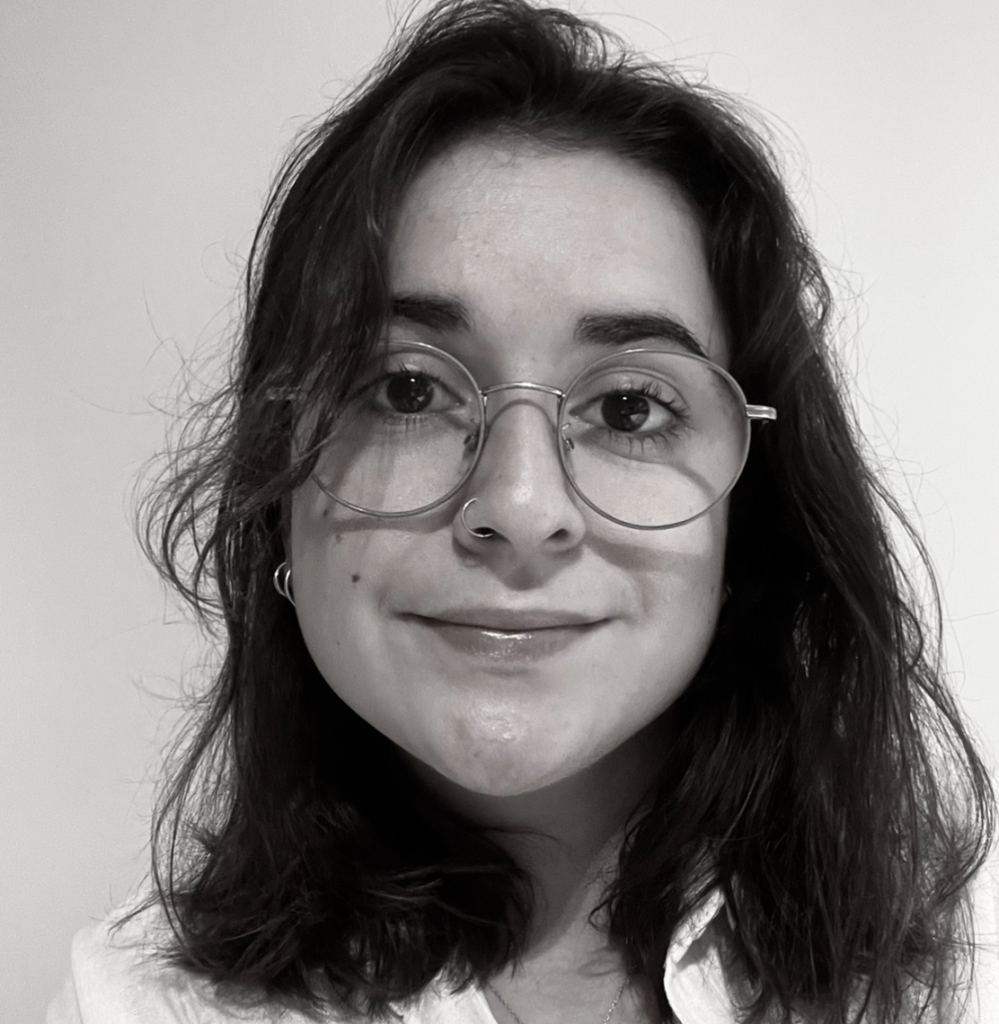 Mariana Santos
Mariana Santos
Social Worker
Mariana Santos is a Social Worker at Casa de Alba. She has a degree in Social Work and a postgraduate degree in Organization Management and Social Intervention, both from the Polytechnic of Leiria. She began her professional career at the Leiria branch of the Portuguese Red Cross, where she started her internship. She has worked with the elderly, the homeless, families and disadvantaged people. She took part in various activities provided by the organization, including home visits, social assistance and monitoring, transporting victims of domestic violence, taking part in the Social Shop and delivering food parcels. She worked at the Specialized Residential Shelter (CARE) – Porta Mágica, providing support in the reception of children and young people at risk, emotional management in crisis situations, organization and contact with the individual life projects of each young person and the promotion of their autonomy. At the moment, she is starting a Master’s degree in the same area as her previous postgraduate degree, in Management of Organizations and Social Intervention.
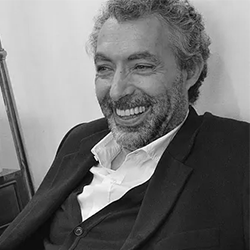
António Paiva
Psychiatrist
Medical Doctor and Consultant Psychiatrist at Casa de Alba, Therapeutic Community. António is the Clinical Director of the Psychiatric Unit in Barreiro Hospital (Lisbon). He is Member of the Portuguese Psychoanalytic Society.

Raquel Pedrosa
Psychiatrist
Degree in Medicine, 2006, from the Faculty of Medicine of the University of Porto (FMUP).
In 2008, she completed a postgraduate course in Clinical Communication Skills at FMUP.
She was invited to join the teaching team of the Medical Psychology Unit of the Department of Clinical Neurosciences and Mental Health at FMUP, collaborating in pre- and post-graduate teaching since 2009.
She completed her specific training in Psychiatry at the Centro Hospitalar e Universitário de São João (CHUSJ), and in 2013 she obtained a specialist degree in Psychiatry.
She continues her clinical activity at CHUSJ, as part of the Community Psychiatry Unit, which treats serious mental illnesses.
She has developed and implemented the Borderline Personality Disorder Intervention Program at CHUSJ. In this context, she has completed the following training courses: Mentalization-Based Treatment: Basic Training, Anna Freud Centre; Workshop in Interpersonal Metacognitive Therapy in Personality Disorders; Basics and Principles of DBT-PTSD – an evidence based treatment for complex PTSD after childhood sexual abuse workshop. British Isles DBT Training.
Trained as a Psychodrama Director by the Portuguese Psychodrama Society, with experience in directing groups since 2010. Since 2019, she has been in charge of the Psychodrama department of the Psychiatry Service at CHUSJ.
 Pablo Daniel Vidal
Pablo Daniel Vidal
Music therapist
Degree in Music Therapy, 1994, from the Facultad de Medicina del Salvador (USAL) Buenos Aires, Argentina. He is currently developing community music therapy projects in partnership with CLDS 4G Estremoz, and music therapy for people with disabilities at ASCTE (Azaruja).
He was responsible for the Oficinas de expressão e comunicação em Musicoterapia project, carried out between 2010 and 2018 in schools in the municipality of Évora. He took part in the Artes a Escola e Portadores de arte project in partnership with CME and Associação cultural Capote.
In 2022, she created the company SOMVIDA Musicoterapia, specialized individual or group rehabilitation and social inclusion services in clinical, organizational and community areas.
She works mainly with creative musical improvisation, song creation and active music therapy methods to generate positive musical experiences.
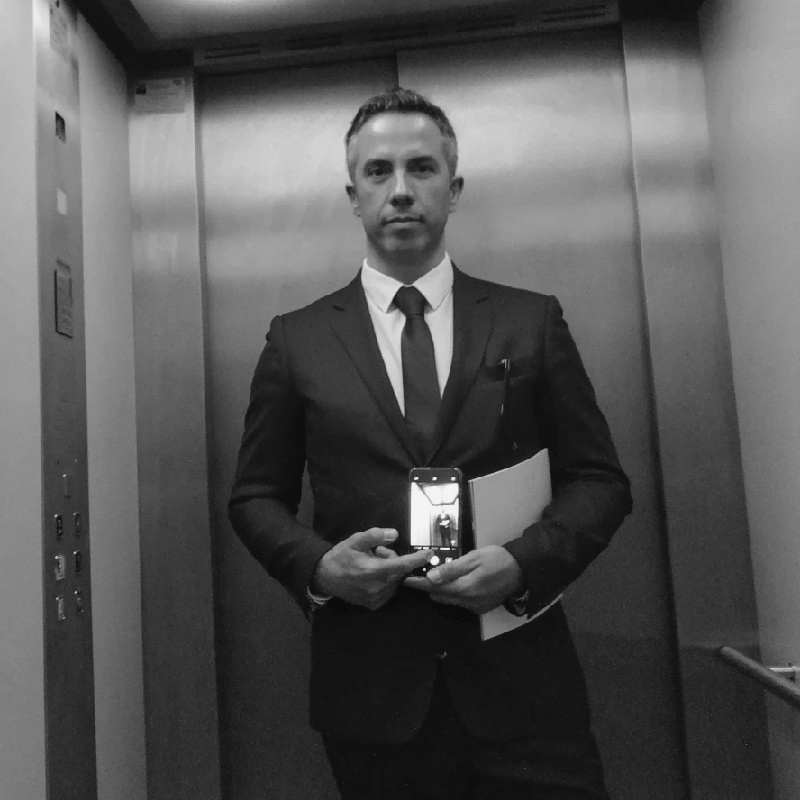
José Rosinhas
Fine Arts Workshop
1993-1998 – Degree in Fine Arts – Painting from the Faculty of Fine Arts, University of Porto.
2003-2004 – Post-graduate degree in Cultural Heritage Management from the School of Arts – Portuguese Catholic University.
Current position: Professor at the National Fine Arts Society | Artistic Director of the “José Rosinhas Art Gallery Wall” project | Fine Arts Educator and Mediator at the Romão de Sousa Foundation | Independent Curator | Visual Artist.
She has been working with the Serralves Foundation since 1998, designing and guiding various activities related to the plastic arts, in particular her collaboration with Professor Fernando Pernes, the Foundation’s Cultural Advisor. Since 2005, she has curated and guided various Cultural Tourism trips for the Serralves Foundation.
Over the last twenty-six years he has worked as a trainer, artist, curator, teacher and cultural programmer in various cultural institutions.
As a visual artist, he has participated in several group and solo exhibitions and is represented in national and international collections.



